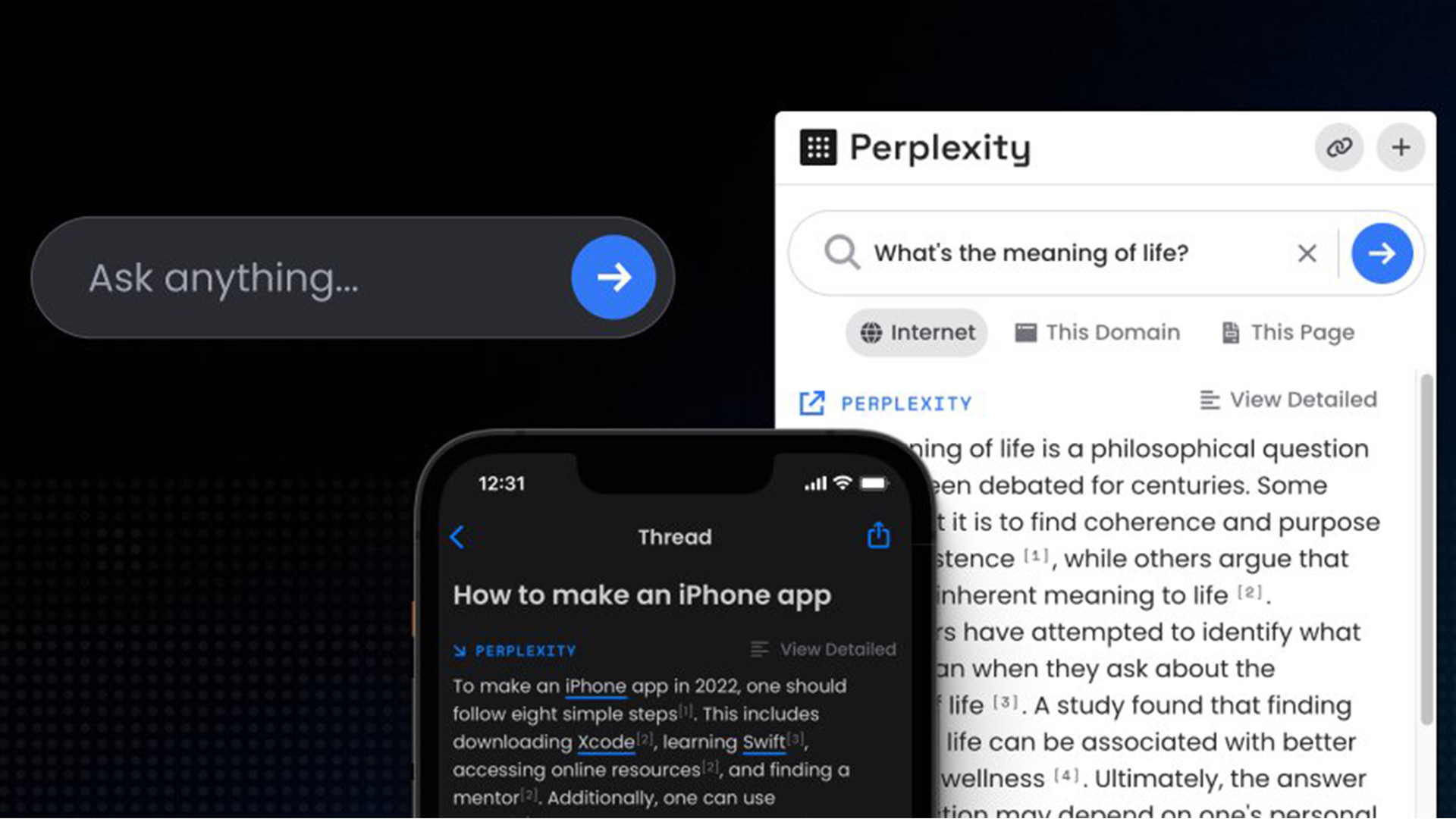Perplexity says its Comet Plus browser will save online journalism, but it’s still an AI middleman
The AI pays for facts, but leaves storytelling in the dust

Sign up for breaking news, reviews, opinion, top tech deals, and more.
You are now subscribed
Your newsletter sign-up was successful
Perplexity enhanced its AI-powered Comet browser with a new $5 monthly subscription service called Comet Plus, which, at first glance, seems like Perplexity looked out at the bleak, ad-choked wasteland of modern digital publishing and decided it could offer something better to consumers and publishers. It's a simple pitch. With Comet Plus, you get AI access to premium news content, such as Gannett and Der Spiegel, with 80 percent of subscriber fees paid directly to those publishers.
And Perplexity is paying publishers in three ways: when people visit a story from the browser, when their content is cited in a search answer, and when an AI agent uses their content to complete a task for you. The idea is that if content is valuable to us in that context, publishers should be paid for that value, and consumers should get something special.
But I'm skeptical this model serves either the people creating the premium content or Comet Plus users. It feels like Comet Plus feeds the paywalled journalism into the AI sausage grinder just like any other content. Perhaps it's paying the farmer a fairer share instead of taking it outright. However, despite the inclusion of links and payment for people visiting the articles, it's hard to believe most people will consume the article and not just the digested result from the AI. Distilled answers engineered for brevity and speed and stripped of voice, structure, and context. All the things that made the writing worth paywalling to begin with. And it almost certainly won’t encourage people to read the original work. In fact, it arguably gives them less reason to do so. People who prioritize efficiency and prefer bullet points to narratives might use the AI browser assistant to synthesize the top five articles on a subject instead of reading all five original sources, for instance. That’s great for task completion. Terrible for the authors whose works are buried somewhere in the output.
This is not some nostalgic plea to support writers regardless of quality. However, I won't pretend that this model addresses concerns about how AI treats work published online or the people who write it (and that's before considering how AI has rendered the em-dash and some of my other favorite style choices unusable, leading to unfair accusations).
Comet Plus
Comet Plus at least tries to address the problem, but it's a thin veneer of respectability that ignores the mess underneath. Perplexity argues that this is a fairer model than the current click-and-ads approach. I don’t disagree. But if you genuinely want to rebuild it in a way that helps writers, then you have to design for visibility, not just monetization. And if you want people to care about human-written articles, stripping articles of context for simplistic short sentences won't help.
No matter what Comet Plus might claim, it makes the same mistake every AI platform has made since 2022 in treating original work as a raw material to be mined, not an experience to be preserved. The cold truth is this: most people will never know whose work their AI assistant just summarized. They won’t know the name of the Pulitzer winner or brilliant, if tired, freelancer cogitating on the future of publishing. They might get the facts, but they’ll miss the point, even if they pay $5 a month to do so.
You might also like
- AI web browsers are the new trend, but will ChatGPT and Perplexity Chrome competitors turn out to be a fad?
- Perplexity AI's Comet browser will streak across the web this month
- Perplexity's voice assistant offers a Siri alternative for iPhones
Sign up for breaking news, reviews, opinion, top tech deals, and more.

Eric Hal Schwartz is a freelance writer for TechRadar with more than 15 years of experience covering the intersection of the world and technology. For the last five years, he served as head writer for Voicebot.ai and was on the leading edge of reporting on generative AI and large language models. He's since become an expert on the products of generative AI models, such as OpenAI’s ChatGPT, Anthropic’s Claude, Google Gemini, and every other synthetic media tool. His experience runs the gamut of media, including print, digital, broadcast, and live events. Now, he's continuing to tell the stories people want and need to hear about the rapidly evolving AI space and its impact on their lives. Eric is based in New York City.
You must confirm your public display name before commenting
Please logout and then login again, you will then be prompted to enter your display name.